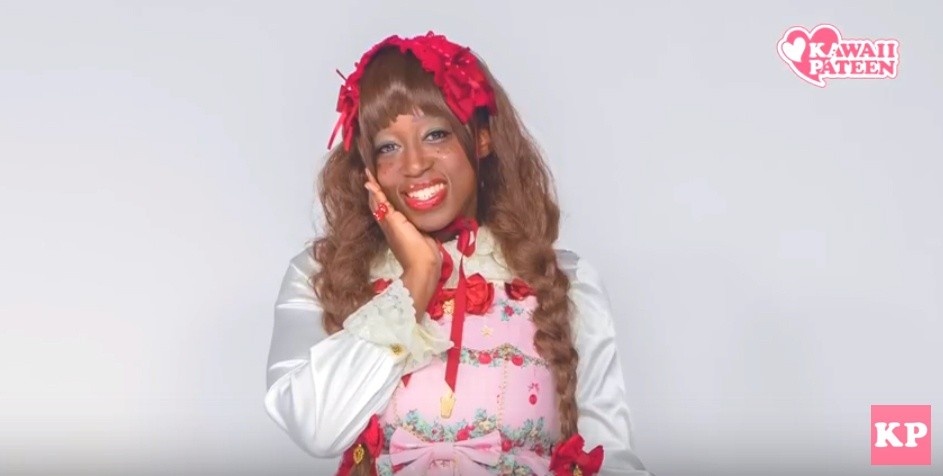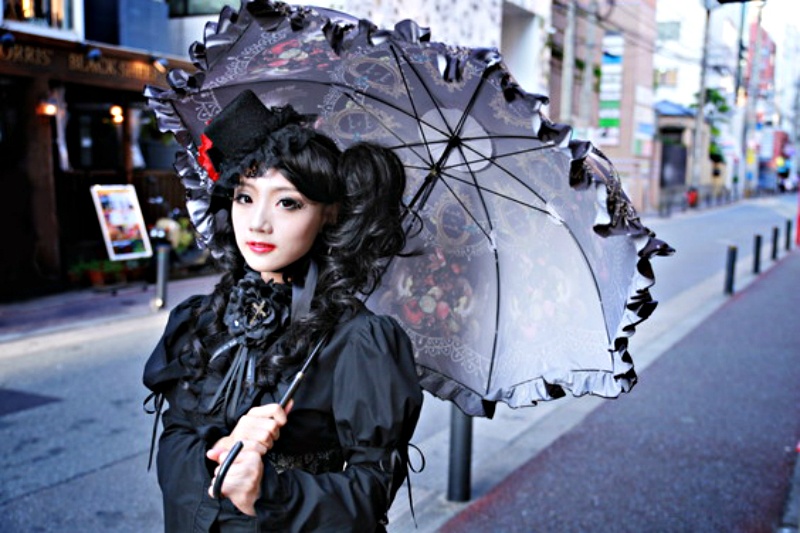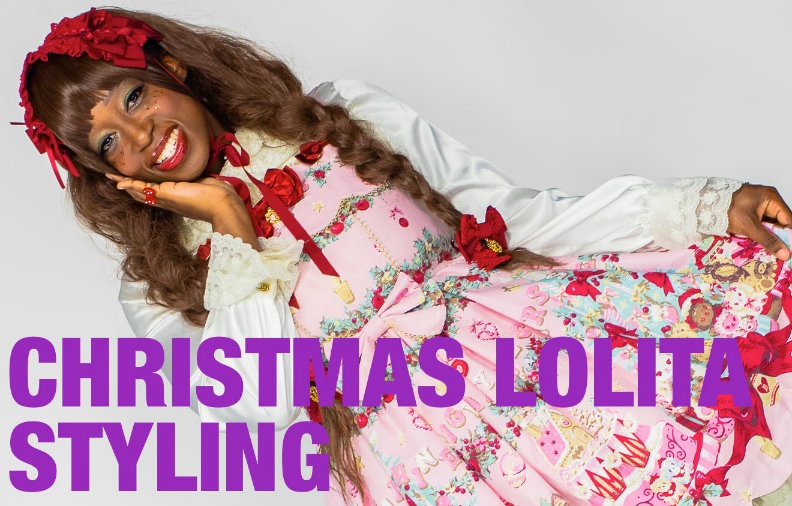Lolita Beauty Isn’t Only Skin Deep
Lolita is one of several styles of fashion commonly seen around Japan. Less common, however, do you see people of darker complexions rocking the ubiquitous baby doll dresses and curly tresses. Reina, a Tokyo-based British actress, recounts her first experience of the Lolita lifestyle and why it means more than just hair ribbons and lace.
By Reina'We’re looking for a black woman to be a makeup model for Lolita fashion.'

https://www.youtube.com/watch?v=BtX17FqRWRw
"Would you be interested?"
Would I be interested?
Can black people appropriately dress in Lolita fashion as well as don the makeup? Isn’t the general concept to look like a doll—a fair or white-skinned porcelain doll? These were some of the questions I must honestly admit ran through my mind upon hearing the offer. Those questions, however, were all lined with fear.
While it may be unusual to see young black girls in Lolita clothing, the beauty of fashion is that it's forever evolving and reinventing itself every season, every decade. The more we see a certain look, the more "normal" it begins to feel. So, I accepted the offer, delighted to be able to leave a piece of history for young dark-skinned ladies to gain confidence and enjoy doing what they love without fear of social repercussions.
https://www.youtube.com/watch?v=uBDvUW2JDd0&list=PLL-9qV_8H3mP-IyE-KEziLxHZs7hici1w
The Lolita makeup segment was run by Kawaii Pateen and hosted by their resident Lolita expert Misako Aoki, a lovely, seemingly passive lady who is, in reality, an incredibly professional model and passionate in all things Lolita. She was friendly and incredibly patient to explain each of the stages of applying makeup as well as the significance of her choices. She was also quick to correct any misapprehensions I'd formed on my own about Lolita fashion.

http://www.kawacura.com/4740
Lolita fashion, as I learned through the experience, is a lifestyle not to be confused with cosplay, or people just “wearing costumes for fun.” No, this is a lifestyle that takes a lot of skill, care and attention to detail regarding color schemes, accessories, wigs and makeup for each outfit. Also, there are a lot of etiquette rules in the Lolita social circles, as well as subcultures such as Gothic Lolita, Baby Lolita, Classic Lolita and many more. Many fashion brands dedicated to Lolita fashion have also been established in Japan.
https://www.youtube.com/watch?v=-znZ07Lnh7k&list=PLL-9qV_8H3mP-IyE-KEziLxHZs7hici1w&index=3
It was a makeup tutorial for the internet but also a huge lesson for me about this mysterious world. To begin, I used my own foundation, concealer and eye shadow suited for dark skin as they’re not readily available to buy in Japan. After choosing an outfit for their Christmas theme, I waited in the studio, excited and curious to see my transformation!
Once complete, we had a short photo shoot where Aoki-san advised me on how to pose and what kind of facial expressions or emotions to consider that would naturally show on camera. It was definitely harder than I thought, and my mind was buzzing with many things, but I think I was able to pull it off okay.
https://www.youtube.com/watch?v=-EP-YSE7-6g&index=5&list=PLL-9qV_8H3mP-IyE-KEziLxHZs7hici1w
Perhaps the most satisfying part of the entire experience was communicating with the Lolita community online and receiving lots of constructive criticism as well as compliments and advice. The general consensus was that many were so happy to see—and be able to picture themselves in—a professional makeup tutorial video coming out of Japan featuring dark-skinned ladies.
Having the experience as a model certainly made me appreciate the entire world with newfound respect. While it may not appeal to everyone, it's certainly an amazing example of individualistic, creative expression that anyone with the passion for it, regardless of race (or religion), can happily partake in.




